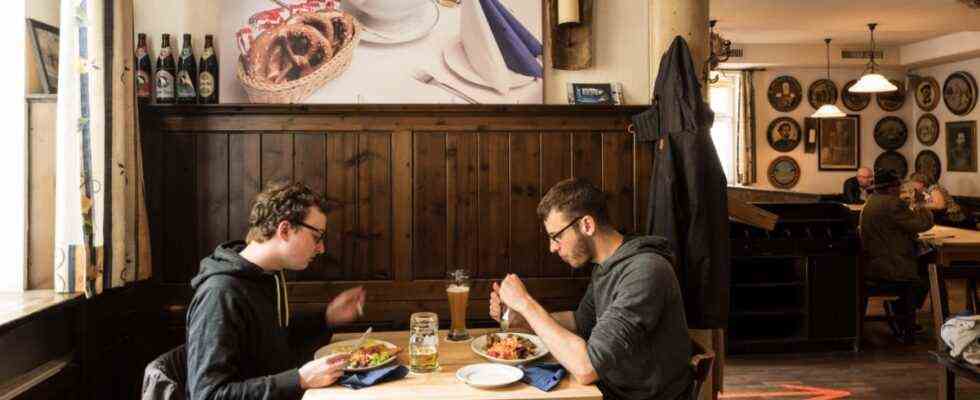Rifle club, fire brigade or parish council need their meeting place again and many people in Oberlauterbach want to come back to the village. You should also think of day trippers, people like to cycle in the area. In short: a landlord is urgently needed for the castle restaurant in Oberlauterbach, which is part of the Pfeffenhausen market in the Landshut district.
City hall, representatives of the village community and the brewery who owns the property are now publicly looking for an innkeeper after the previous tenant had stopped. They promise that the restaurant and beer garden are guaranteed to be well frequented. We want someone whose “heart beats for gastronomy”. Mayor Florian Hölzl (CSU) praised the cohesion in the market during the “Dorf sucht Wirt” campaign. Together they do not want to “simply come to terms with a possible exit from the castle restaurant, but rather we stand on our back legs to find a new tenant”.
Again and again there are campaigns like this in Bavaria, sometimes as a sheer call for help, sometimes more as a casting. Village without a host – that is the scenario that should not come about. But that is by no means uncommon in Bavaria, even before the pandemic. There is often talk of “pub dying”, whether on a small scale, when a restaurateur gives up and the inn is dreary and orphaned in the center of the village. Or in the overall picture: In more than 500 communities there is no longer an inn, complains the Bavarian hotel and restaurant association Dehoga.
There are still no concrete figures about the consequences of Corona, says Dehoga country manager Thomas Geppert. Yes, he knew about inns in the country that were closed forever during the crisis. The positive news is that there has been no bankruptcy wave so far, thanks to state aid and “the commitment and creativity of the industry”. “But it will take a while until we are over the mountain. There must be no lockdown again. And suitable framework conditions are required for the recovery phase,” says Geppert. For example, he calls for the reduced VAT rate to be deferred and drinks to be included. Taverns would have no preferred business like hamstering groceries and no catch-up effects. In other words: Nobody ate two schnitzel instead of one at the beginning of the crisis – or does that now.
A few years ago, a study by the University of Eichstätt analyzed in detail the causes of inn dying, funded by the Ministry of Economics and Dehoga. Accordingly, it is a complicated situation: It was discussed that consumer behavior and mobility are changing. That the inn could no longer be so popular as a social space and meeting place for communication in times of individualization. That a “radical market shakeout” may also take place if locales follow traditional patterns, are no longer profitable and are no longer in demand with the public. In addition, there is often a lack of staff, for example no cook can be found. That landlords retire or simply don’t feel like it anymore – and no offspring will follow. “The profession of restaurateur is highly professional, you don’t do it on the side and not just like that,” emphasizes Geppert. The pandemic has also shown how quickly everything can shut down and livelihoods cease to exist – perhaps this will slow down a little risk appetite for taking over an inn in the future.
Mayor Hölzl in Pfeffenhausen, a former member of the state parliament, defines the inn as the “center of society” – as such, it “still has its place”. Hence this call instead of an anonymous advertisement. The first inquiries are already “trickling in”; ideally there would be a host “who simply suits us”.
Chances of success? Absolutely. Example Geratskirchen im Rottal. They shot a YouTube video with four men on the beer bench, with soda bottles and longing for a freshly tapped Hellen at the beginning of 2020. Tenor: “Oans go: the landlord”. Dozens of interested parties became loud afterwards Passauer Neue Presse counted. A young master butcher from Deggendorf took over the inn and offers wild boar schnitzel, venison burgers and the like as a modern interpreted Dorfwirt “Wuidara” – and a contact point for citizens and associations. The grateful village is said to have diligently ordered deliveries during the pandemic in order to help its new host well through the crisis.

